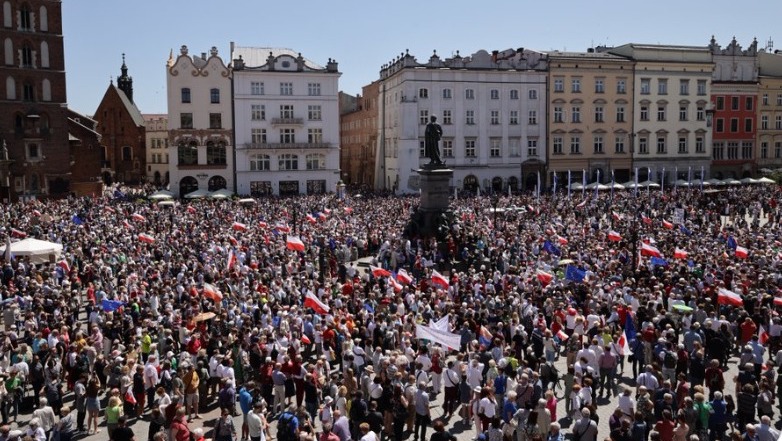
The European Commission initiated infringement proceedings against Poland June 8 over the country’s recently-passed law aimed at officials who have allegedly come under Russian influence. The new law, nicknamed the “Lex Tusk” after former Polish PM and purported target Donald Tusk, establishes a committee to investigate whether certain officials acted under “Russian influence” between 2007 and 2022. The law authorizes the committee to hand out 10-year bans from obtaining security clearances, controlling public funds or holding a firearms license.
The European Commission says that the law “interferes with the democratic process” by potentially subjecting officials running for re-election to high-profile inquiries, and asserts that the law may effectively bar candidates from public office. It also criticizes the law for broadly defining “Russian influence” and making the new committee’s findings unreviewable by the courts.
The commission asserts the law violates articles 2 and 10 of the Maastricht Treaty; articles 7, 8 and 47 of the EU Charter of Fundamental Rights; and the General Data Protection Regulation (GDPR).
President Andrzej Duda proposed amendments to the law on June 2 in response to international scrutiny. The amendments would ensure the committee is non-partisan, remove the committee’s ability to issue 10-year bans, and make its findings reviewable by the Polish courts.
Despite Duda’s proposed concessions, Tusk joined hundreds of thousands of protesters who took to the streets of Warsaw on June 4, demonstrating against the law and other government policies.
The EU acknowledged Duda’s proposed amendments but still commenced infringement proceedings, noting that “the legal situation remains unchanged.”
The European Commission proceedings come days after the EU Court of Justice ruled that Poland’s recent judicial reforms violated EU judicial independence rules. In February, the European Commission referred Poland to the Court of Justice over court decisions allowing the government to ignore certain EU statutes.
From Jurist, June 8. Used with permission.
Note: The ruling right-wing Law & Justice Party (PiS) is ironically accused by the opposition of emulating Russia in seeking to impose an authoritarian regime through the subterfuge of a “Russian influence” law. Crowds at the June 4 protest waved the EU flag, making clear their antipathy to Russian designs on the continent. (BBC News, ATC)
Photo: Germany Today News




